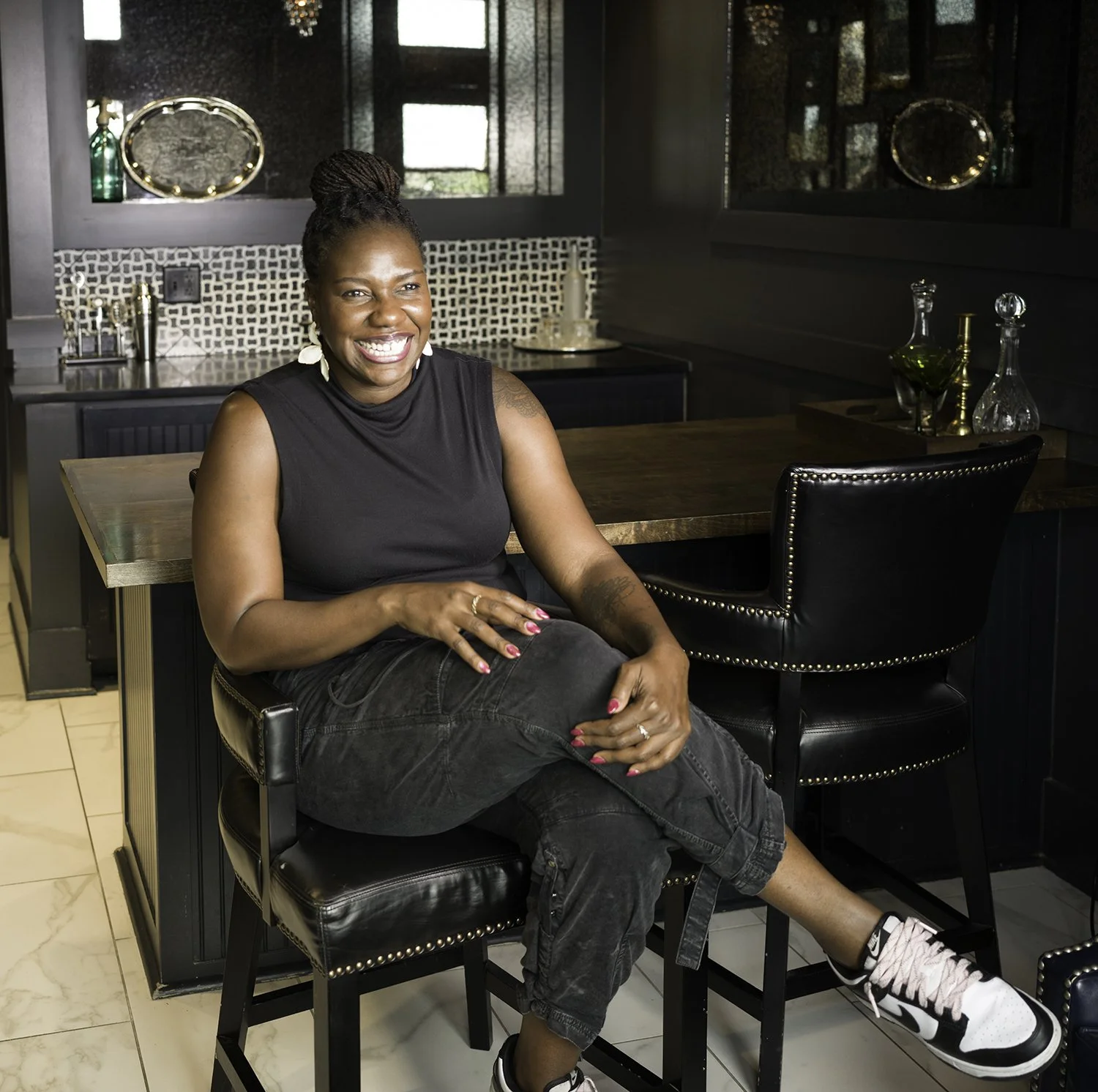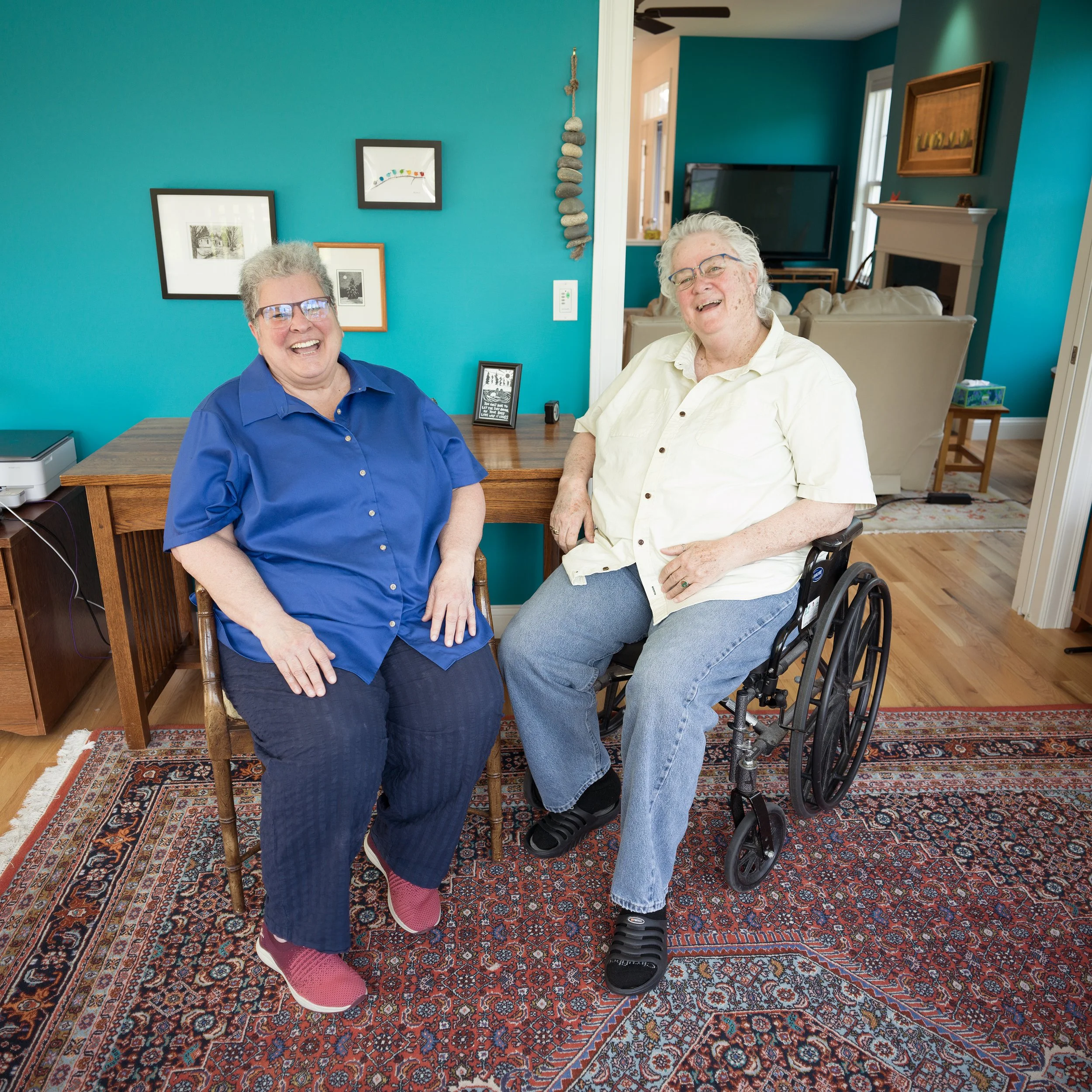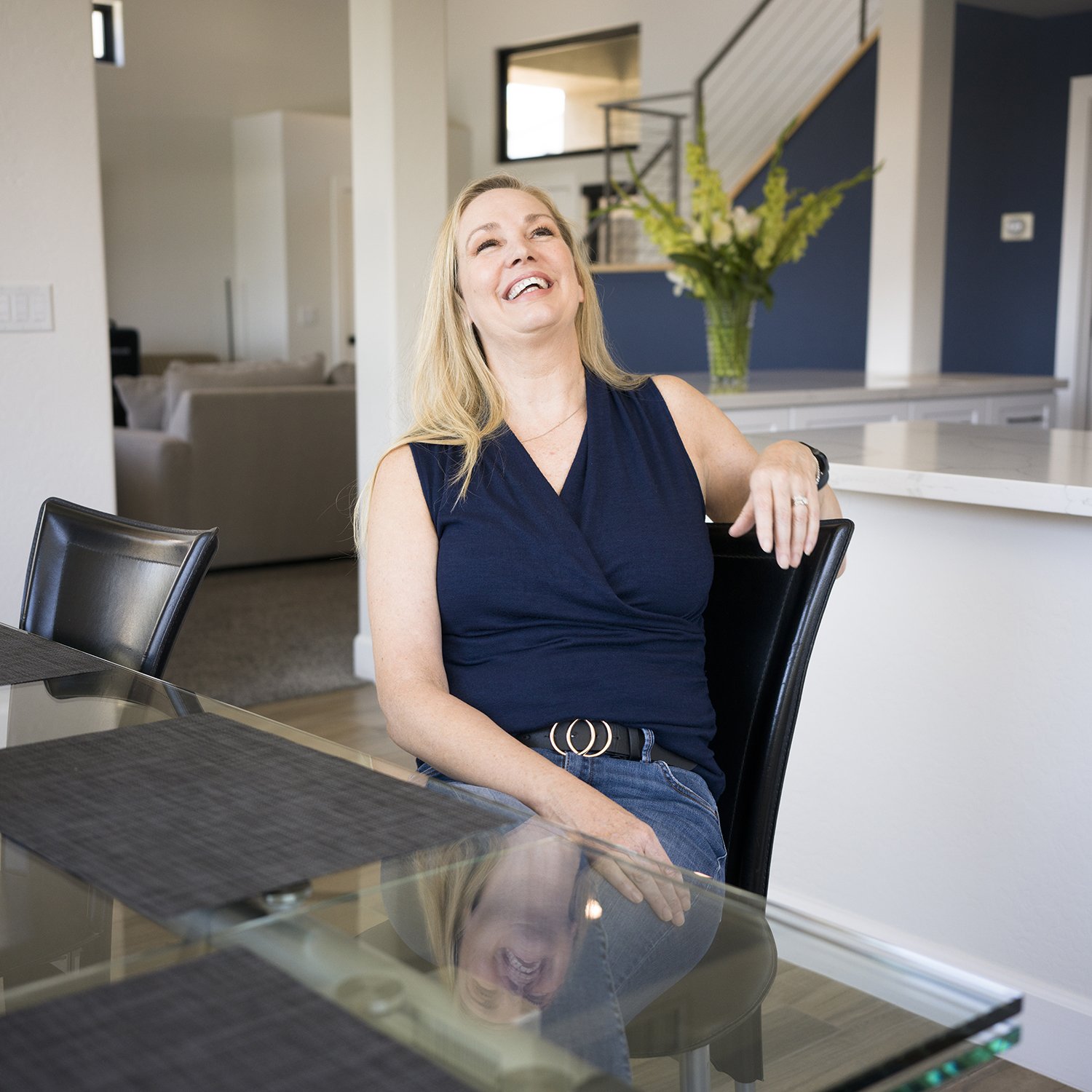“Do You Have a Cat?” Conversations with Child Free Women Color photography 24”x24” each 2024-Ongoing
This project insists that women’s lives have value and complexity beyond motherhood, directly challenging narratives that equate womanhood with reproduction and care work. It interrogates pronatalist pressure, demographic panic, and the dehumanizing “childless cat lady” stereotype by foregrounding women’s self-definition and agency.
Through collaboratively made photographic portraits and the collection of oral histories, the project redistributes power in both image-making and storytelling, aligning with feminist commitments to consent, representation, and autonomy. I amplify these counter-narratives, and build community among childfree women, countering the belief that women without children have failed a biological imperative. I meet each participant in a relaxed environment of her choosing—home, workplace, or another meaningful location—and engage in a one- to two-hour conversation. I position the camera at eye level, which is set to automatically capture five frames every ten seconds, generating hundreds of images while we talk.
Because the camera works continuously, common methods of making portraits, like directing posing, are discarded. Instead, participants move, gesture, and respond as they would in any engaged conversation. This process disrupts the entrenched power dynamic of portrait photography—that is, a photographer who looks and the subject who is looked at. Instead, I share this generative and creative space equally with my participant. We then work collaboratively to select a small number of images for public presentation as large-scale prints.
Growing up, social norms taught me that women who did not have children were deficient. In media, childless women appeared as cruel nurses, rigid schoolteachers, or lonely spinsters. In my family, the message was quieter but clear; life without children would be unbearably empty.
Currently, anxious headlines warn about a birthrate of 1.62 children per woman even as the global population climbs past eight billion. I question whether this panic is sincerely about fewer births or rather the desire to control reproductive rights combined with an inability to imagine fulfilling lives that do not center motherhood.
“Do You Have a Cat?” Conversations with Childfree Women, honors women who live outside this norm as childfree women whether by choice, chance, tragedy, or time. It builds community by sharing photographic stories from a diverse group of women who navigate narratives of demographic panic, social expectation, and the specter of ‘old age without anyone to take care of you.’ This project challenges the assumption of lack, using portraiture to make visible and value the lives of childfree women.





